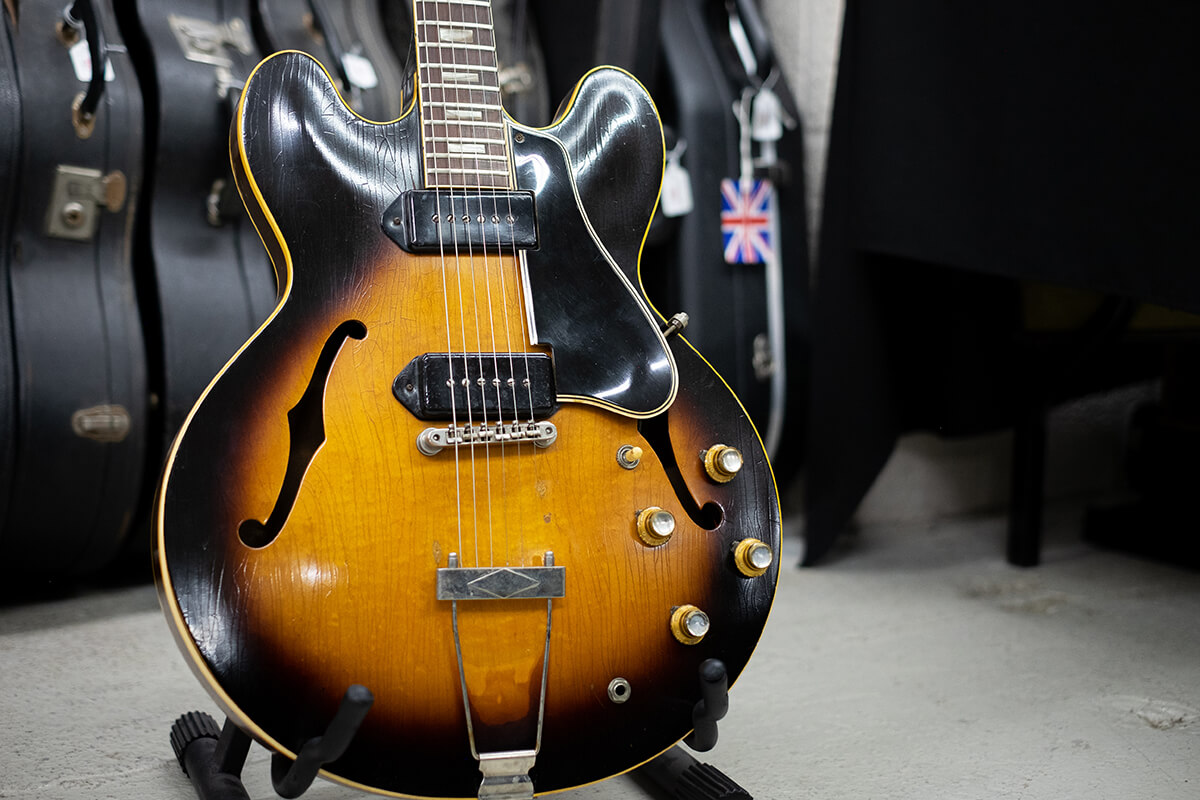Related Tags
Gibson vs Dean: Five things you need to know
Lost in the Gibson and Armadillo Enterprises controversy? Here are five key points you need to know.

1960s Gibson ES-330
If you’ve only just found out about the Gibson versus Armadillo story that’s set the online guitar community chattering, here’s a quick recap of what led to the multi-million dollar lawsuit that the Nashville-based brand is claiming against the parent company of Dean and Luna Guitars:
Gibson filed an official complaint against Armadillo in May
On 14 May 2019, Gibson filed a lawsuit against Armadillo in the US District Court For The Eastern District Of Texas. The lawsuit, which was later amended on 6 June, accused Armadillo of trademark infringement over the Flying V body shape, Explorer body shape, ES body shape as well as the Hummingbird and Moderne trademarks.
This complaint also claimed that Armadillo had knowingly deceived its customers into believing that its products were Gibson’s. Notable is the fact that Gibson had sent several cease-and-desist letters to Armadillo, the most recent of which was a day before the lawsuit was filed.
Gibson subsequently sent a letter to Dean’s dealers
In an official response from Armadillo Enterprises’ CEO and President Evan Rubinson, he mentioned that Gibson had sent an unsolicited letter to Dean and Luna dealers that took many of them by surprise. The exact contents and date of the letter are unknown, but Rubinson revealed a few nuggets. He said the letter informed dealers that Gibson had decided to “pursue actions against [Armadillo] in connection with the alleged ‘copying’ of the Flying V, Explorer, and ES-335 guitar shapes”.

The trademark registration dates are important
While Gibson does own the trademarks of those body shapes, these were registered well after Dean Guitars had launched its own V and Z models.
For instance, the trademark for the Flying V body shape (US registration number 2051790) was registered on 15 April 1997. The Explorer body shape (US registration number 2007277), on the other hand, was trademarked on 22 April 1997. Both Dean’s V and Z models were released two decades earlier, in 1977.
Interestingly, Gibson has been applying for new, revised trademarks on these designs over the past few years. The original Explorer trademark is described as “The mark comprises a fanciful configuration of a guitar body.”
But a new trademark application, dated 11 September 2018, is described as, “The mark consists of a two-dimensional single-line outline of the body of a guitar and guitar neck.” The appended diagrams of the Explorer also differ considerably, with the later application appearing far more abstracted and pared-down than the registered trademark. Crucially, these new applications have not yet been officially registered.
All the dates and the details of these trademarks are on public record. They can be retrieved with a quick visit to the official United States Patent And Trademark Office’s electronic database.
Gibson put up a controversial YouTube video urging people to “play authentic”
In a now-deleted video, Gibson’s Director Of Brand Experience Mark Agnesi came down hard on ‘copycats’ and ‘counterfeiters’. He cautioned brands, boutique or otherwise, against producing “forgeries” of Gibson’s design elements such as headstock inlays and body shapes: “To the manufacturers out there, we want you to know that you’ve been warned.”
The video led to an avalanche of negative responses on social media sites, and it was quickly taken down – but not before a Redditor uploaded a mirrored version of it.
Armadillo responds, countering Gibson’s claims
On 20 June 2019, Armadillo sent its own letter to its dealer network that called Gibson’s lawsuit “baseless”. Later that day, the company alerted the media with a statement whose key points reiterated those in that letter.
“We believe that Gibson’s claims are baseless and will vigorously defend ourselves,” the press statement read. “As the proud owner of some of the most famous brands in the music industry, we respect and value the intellectual property rights of others. But we also recognise that some things are just too commonplace and basic for one company to claim as its property. Dean Guitars has been continuously offering the V and Z-shaped guitars at issue in the lawsuit since at least 1976 – for over the past 40 years.
“And Dean Guitars is not alone; other guitar companies have for decades used the commonplace guitar shapes that Gibson now tries to claim exclusive rights to.”
Are you a Dean and Luna dealer or player? We’d love to hear your thoughts on this story. Get in touch at editors@guitar.com.
